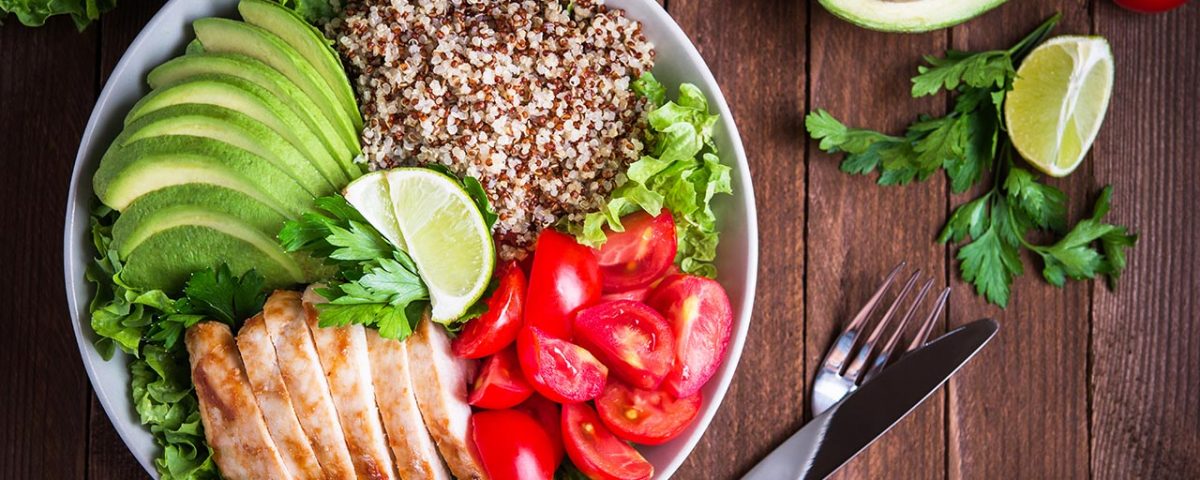Finding sobriety from addiction typically revolves around what addicts are not ingesting anymore, including drugs and alcohol.
But an often-overlooked aspect of successful addiction treatment is also what these individuals and their bodies have been missing. Alcoholics, for example, get as much as 50% of their daily calorie allowance from alcohol alone.1 Many addicts are dealing with nutritional deficiencies or malnutrition, which can make achieving sobriety even tougher. The team at our Banyan Heartland Treatment center explains the importance of nutrition in recovery and the kinds of foods that people in this situation should and should not avoid.
Nutrition and Addiction Recovery
The body goes through considerable challenges during an active addiction, and healthy foods can help to mitigate some of the physical damage that has been done. Many detoxification processes can result in digestive issues as the body attempts to equalize. This is why it’s important to start eating well early in recovery, during care from our Heartland detox, for example. Eating well helps improve mood, regulate sleep, and establish a better routine for patients. Healthy eating should extend well beyond detox and through treatment to solidify lasting sobriety.
There is a growing trend in drug and alcohol treatment that includes nutrition for recovery. In this approach, patients replace chemicals within the brain that have been altered by addiction through proper nutritional eating. High-protein foods, for example, can help replace deficiencies in brain chemistry stemming from addiction.
Another important factor to consider is the agency that proper nutrition grants. For many people with addiction, they have reached a point where they care so little about the harm being done to their body by their substance of choice that they would rather continue that damage than face withdrawal. By providing them with proper education in nutrition, they can obtain a whole new understanding of how important it is to consider the things we ingest and why taking care of both the mind and body is crucial when upholding sobriety.
Proper education should consider the following goals:
- Nourishing parts of the body that have been damaged by substance abuse
- Minimizing cravings for alcohol and drugs
- Stabilizing the mood of the patient and reducing their overall stress
- Addressing any co-occurring disorders or conditions that have resulted from the abuse
- Encouraging a healthy lifestyle that prioritizes true self-care
It is our hope that anyone that leaves our Gilman, IL, Banyan rehab has experienced and reached all of the goals listed above and has learned lessons and knowledge they can apply to their lives moving forward.
What a Recovering Addict Should Eat
Being that many people with addiction may be experiencing vitamin and mineral deficiencies that likely have an effect on their physical and mental health, it is crucial that there are a variety of foods to eat in recovery that can improve these nutritional deficiencies and support overall health. Important foods to eat in recovery include:
- Good carbohydrates: Carbs are the body’s main source of energy, meaning that without a substantial amount, the brain won’t be able to function at its full potential. They aid in the production of serotonin, which facilitates a happy mood and the ability to get a good night's sleep.
- Dietary fats: These have an effect on a person's cell membrane integrity and play an important role in mental health management. Limiting the intake of these fats can also have a visible effect on the individual's mood.
- Protein-rich foods: The amino acids within many high-protein foods are precursors to vital chemicals in the brain responsible for happiness and mood regulation, so eating protein-heavy foods can help mitigate the depletion that was caused by addiction.
- Easily digestible foods: Addiction can create a substantial number of digestive issues, especially in early recovery. So focus on easily digestible foods early on, such as oatmeal, simple grains, fruits, and vegetables.
- Add vitamins into the mix: Vitamins such as Omega 3 and Vitamins B and C can help improve the brain’s functionality post-addiction.
A good rule of thumb is to focus on eating nutritious foods and maintaining a well-balanced diet in early recovery. Simple foods that are easy to digest are also important to eat when in recovery.
Foods to Avoid in a Recovery Diet
Though you have worked on breaking free from drugs or alcohol, the pathways of addiction are still present. Nutrition in recovery also involves foods to avoid, including:
- Sugar: It is common knowledge that you can have too much of a good thing. Although sugary foods and drinks can taste good at the moment, they can lead to extreme mood swings and other complications that make recovery that much harder to maintain.
- Refined carbs: Foods like cake, pasta, and white bread are examples of some not-so-good carbs that don’t provide the nutrition necessary to maintain a proper sobriety diet. They can have a detrimental effect on the individual’s insulin and cholesterol levels, metabolism, pH balance, and overall mood.
- Caffeinated beverages: Caffeine can be a trigger for mood swings and is addictive in its own right.
Balance is key. Even a nutrition addiction, or an unhealthy obsession with one's own physical health, can be a sign that a problem is still present. The best way to treat these occurrences is to successfully complete a residential treatment program that not only focuses on optimizing physical health but teaches healthy coping mechanisms to apply once you leave. Banyan Heartland’s drug treatment facility offers a variety of effective therapeutic methods that can identify a patient’s harmful thought patterns and replace them with more beneficial alternatives.
A whole new life could be right around the corner. Our team of professionals is ready and waiting to guide you through the journey of recovery and help you realize a sobriety diet and lifestyle that will see you through. This is your sign to take the steps towards a whole new life.
Our Illinois addiction treatment facility offers guidance on nutrition in recovery. Call 888-280-4763 to learn more about our addiction treatment programs.
Sources:
- NIH – Alcohol Alert
- Today’s Dietitian – Substance Abuse and Nutrition
- Integrative Psychiatry – Addiction Recovery
Related Readings








